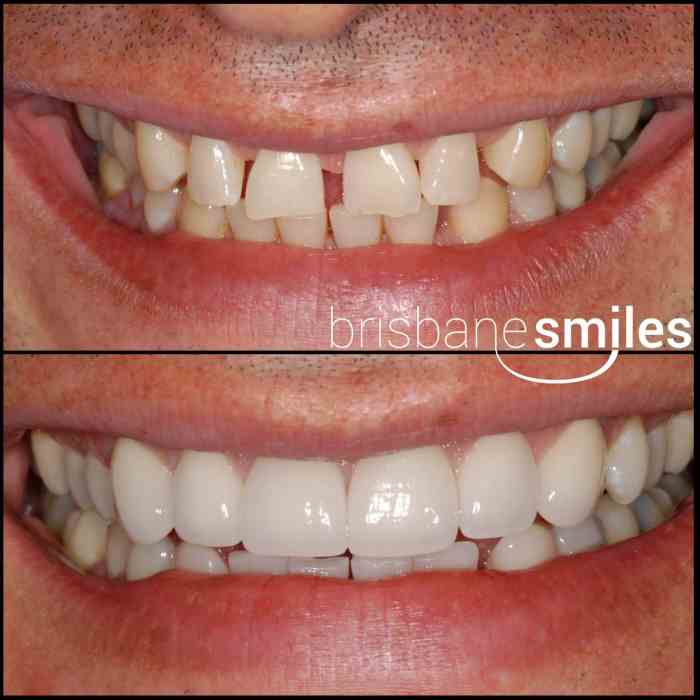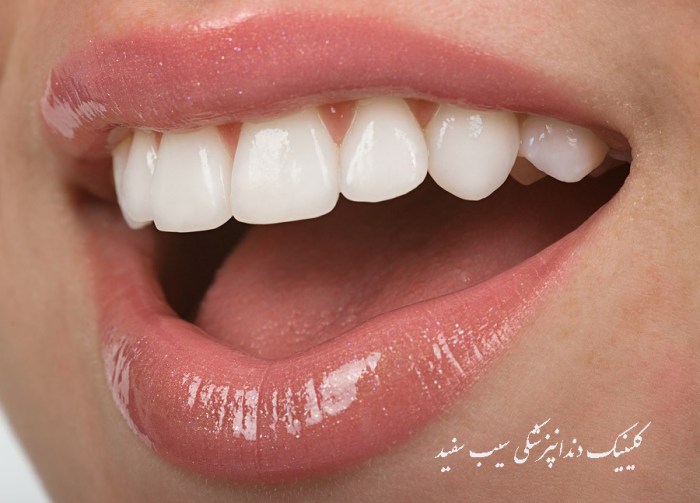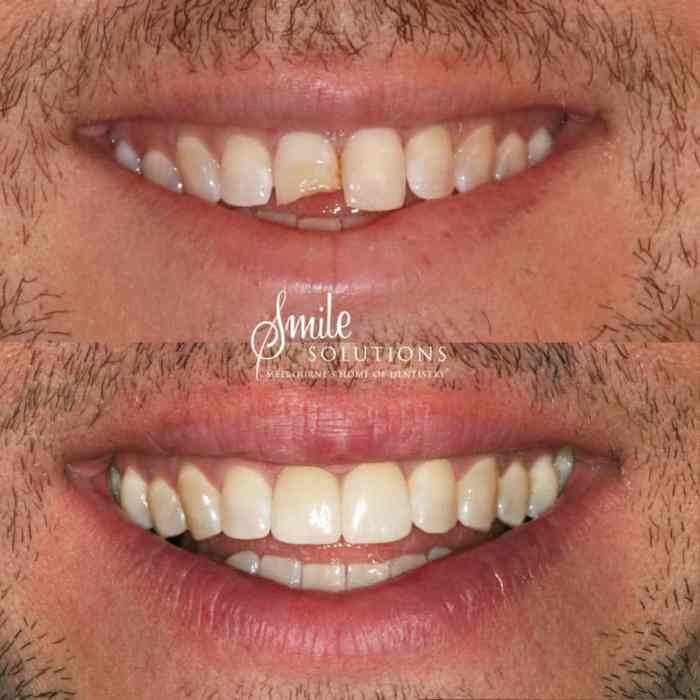Which of the following statements is correct concerning porcelain veneers? This question delves into the realm of dental aesthetics, exploring the properties and applications of porcelain veneers. Porcelain veneers have gained popularity as a cosmetic dental solution, offering numerous advantages in terms of durability, aesthetics, and functionality.
This comprehensive guide will provide insights into the various aspects of porcelain veneers, empowering you with the knowledge to make informed decisions about your dental health.
Porcelain veneers are thin, custom-made shells that are bonded to the front surfaces of teeth. They are designed to enhance the appearance of teeth by correcting a wide range of dental concerns, including discoloration, chips, cracks, and misalignment. Porcelain veneers are renowned for their natural-looking results, providing a beautiful and radiant smile.
Durability and Longevity

Porcelain veneers are renowned for their exceptional durability and longevity compared to other dental restorations. With proper care and maintenance, they can last for several years, even decades, without significant deterioration.
The strength and resilience of porcelain veneers stem from their composition and fabrication process. Porcelain is a highly durable ceramic material that is resistant to chipping, cracking, and wear. The veneers are custom-made to fit each patient’s teeth, ensuring a precise and stable fit that minimizes the risk of dislodgement or damage.
Factors that can affect the lifespan of porcelain veneers include oral hygiene habits, diet, and the patient’s overall dental health. Regular brushing, flossing, and dental checkups help maintain the integrity of the veneers and prevent potential problems.
Esthetic Appeal
Porcelain veneers offer an unparalleled level of esthetic appeal, transforming smiles into radiant and captivating masterpieces.
The veneers are meticulously crafted to mimic the natural appearance of teeth, with a wide range of shades and translucencies available to match individual tooth colors. This allows for seamless integration into the patient’s smile, creating a natural and harmonious look.
Beyond color matching, porcelain veneers can also correct tooth shape, size, and alignment. They can conceal imperfections such as gaps, chips, or misalignment, resulting in a straighter, more symmetrical smile.
Biocompatibility and Safety

Porcelain veneers are biocompatible, making them suitable for patients with metal allergies or sensitivities.
The material used in porcelain veneers is inert and non-toxic, posing no risk of adverse reactions or allergic responses. It is well-tolerated by the oral tissues and does not interfere with the body’s natural functions.
Long-term studies have demonstrated the safety and efficacy of porcelain veneers, with no significant adverse effects on oral health. However, as with any dental procedure, there are potential risks and complications associated with porcelain veneer placement, such as gum irritation, sensitivity, or chipping, which can be minimized with proper care and maintenance.
Fabrication and Placement

The fabrication and placement of porcelain veneers involve a meticulous process that combines advanced technology with skilled craftsmanship.
Using digital impressions and computer-aided design (CAD), porcelain veneers are custom-designed to fit each patient’s unique tooth anatomy. The veneers are then crafted from high-quality porcelain material and meticulously glazed to achieve the desired shade and translucency.
The placement of porcelain veneers requires careful tooth preparation and bonding. The teeth are minimally prepared to create a space for the veneers, ensuring a precise and secure fit. The veneers are then bonded to the teeth using a strong adhesive, creating a durable and long-lasting restoration.
Maintenance and Care

Maintaining porcelain veneers is essential for their longevity and esthetic appeal.
Regular dental checkups and professional cleanings are crucial for monitoring the health of the veneers and surrounding teeth. These appointments allow the dentist to assess the fit, condition, and cleanliness of the veneers, ensuring early detection and treatment of any potential issues.
Patients should practice good oral hygiene at home, including brushing twice a day and flossing daily. This helps remove plaque and bacteria, preventing the development of cavities and gum disease. While porcelain veneers are stain-resistant, consuming dark-colored foods and beverages should be minimized to prevent discoloration.
Alternatives to Porcelain Veneers
While porcelain veneers are a popular choice for enhancing smiles, there are alternative dental restoration options available.
Composite bonding is a less invasive and more affordable option, involving the application of a tooth-colored resin material directly to the tooth. However, composite bonding may not be as durable as porcelain veneers and can be more susceptible to staining.
Crowns are another alternative, covering the entire tooth structure. They offer excellent strength and durability but may be more noticeable than porcelain veneers, which are designed to blend seamlessly with the natural teeth.
User Queries: Which Of The Following Statements Is Correct Concerning Porcelain Veneers
What are the advantages of porcelain veneers?
Porcelain veneers offer several advantages, including their natural appearance, durability, stain resistance, and ability to correct a wide range of dental imperfections.
Are porcelain veneers permanent?
While porcelain veneers are durable, they are not permanent and may require replacement over time due to wear and tear or changes in the underlying tooth structure.
Do porcelain veneers require special care?
Porcelain veneers require regular brushing and flossing, as well as periodic dental checkups and professional cleanings to maintain their appearance and longevity.